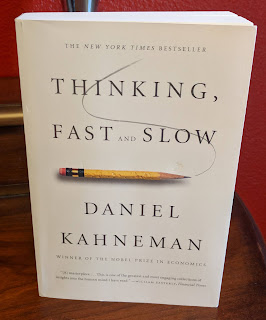The Emotional Wound Thesaurus: A Writer's Guide to Psychological Trauma by Angela Ackerman & Becca Puglisi

The Emotional Would Thesaurus: A Writer's Guide to Psychological Trauma by Angela Ackerman & Becca Puglisi lists a number of events that cause emotional wounds and provides a list of how those wounds affect one's psychological well-being and place in society. Acherman and Puglisi give insight into how to write characters who have been through a variety of traumatic situations. It's a reference book that any writer could find handy from time to time. While much more research might be necessary depending on the plotline, The Emotional Would Thesaurus offers a great starting point by giving a snapshot of each emotional wound it discusses. The appendix includes some helpful worksheets. Because of the similarities of some of the effects of the emotional wounds discussed, I found it easier to internalize each wound by giving myself time to think between reading each one. The Emotional Wound Thesaurus will stay on my shelves as a handy reference for those times when I need


